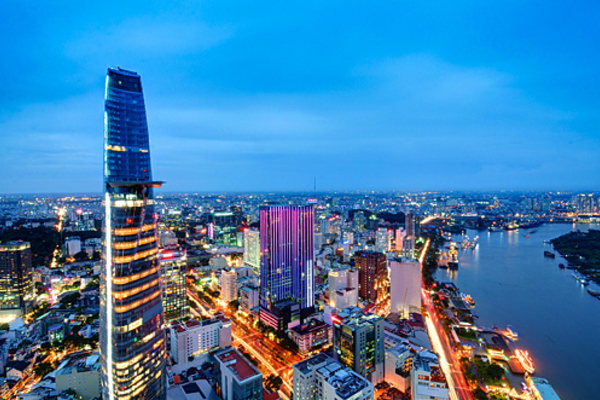Viet Nam to see 125% increase in wealth over next decade: CNBC
VGP - Viet Nam is forecast to see a 125 percent increase in wealth over the next 10 years, noted U.S. TV channel CNBC in its recent article.

Andrew Amoils, New World Wealth's analyst, told CNBC, this would be the largest expansion in wealth of any country in terms of GDP per capita and number of millionaires.
"Viet Nam is an increasingly popular manufacturing base for multinational tech, automotive, electronics, clothing and textile firms," Amoils said.
Viet Nam, which is home to 19,400 millionaires and 58 centimillionaires, is perceived as a relatively safe country compared with other nations in the Asia-Pacific region, Amoils noted, which provides companies an extra incentive to set up manufacturing operations in the county.
The nation is set to see the sharpest spike in wealth growth over the next decade as it cements its status as a global manufacturing hub, according to a report by global wealth intelligence firm New World Wealth and investment migration advisors Henley & Partners.
The country's "strategic location"-sharing a land border with China and being close to major maritime trade routes, low cost of labor, as well as infrastructure supporting exports from the nation have all transformed Viet Nam into a "prime destination" for international investment, McKinsey said in a report.
Just 10 years ago, Viet Nam's GDP per capita was around US$2,190, which nearly doubled to US$4,100, according to data from the World Bank.
"Viet Nam is developing rapidly and most of the population is benefitting," Andy Ho, chief investment officer of VinaCapital Group, told CNBC via email.
Many multinational companies diversify manufacturing to Viet Nam as part of their "China plus one" strategy, and has seen consistently strong foreign direct investments from multinational corporations, Ho said.
FDI into Viet Nam rose 32 percent from a year earlier to US$36.6 billion in 2023.
"The foreign investments are "sticky money," resulting in good jobs that pay decent wages and enable millions of Vietnamese people to improve the quality of their lives," he said.
Viet Nam's growth story has been propelled by an export-led industrialization, driven by three waves of foreign direct investments over the past three decades, and the country is on the precipice of a fourth wave, Maybank's Economist and Assistant Vice President Brian Lee said.
